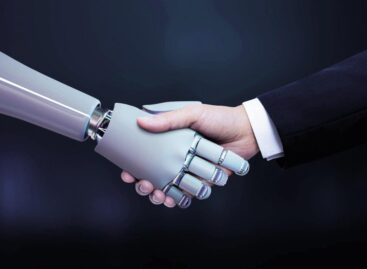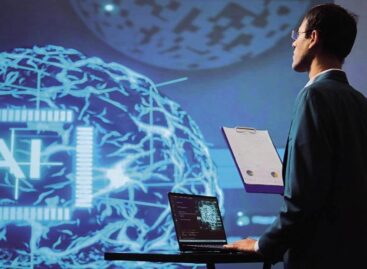Two-thirds of employees fear for their jobs from artificial intelligence
Artificial intelligence has irreversibly broken into the world of work, and companies are already automating 34% of processes, and according to estimates, an even bigger jump will come in the coming years. At the same time, more and more people are worried about losing their jobs, but the AI revolution unfolding before our eyes not only presents challenges, but also opportunities: instead of inflexible jobs, individual project tasks can come, value creation instead of administration, more efficient companies and more satisfied employees. What will a good resume look like in 10 years, what will be the role of company training, and why is a change of perspective essential when creating business strategies? In the latest podcast of the Stylers information technology company group, Eszter Debreczeni, an HR and organizational expert, and Silur, a world-renowned ethical hacker and cryptographer, told what the workplace of the future could be like.

Smart algorithms quietly seeped into our everyday lives and bombarded us with personalized offers in webshops and streaming platforms. However, since December last year, technology has come to us in a very tangible and tangible way in the form of ChatGPT, with which everyone can now chat, write essays or compile price offers. It’s no wonder that two-thirds of employees fear for their jobs from artificial intelligence, and some large companies have already announced that they plan to replace the work of thousands of people with machines. However, according to experts, this is a very hasty step.
“It is important to see that, as with previous industrial revolutions, it is not possible to predict exactly what the impact of technology will be on the labor market. First of all, it is a big question how quickly AI increases the efficiency of manpower or how much latent demand there is in the given market, i.e. how many graphic designers or copywriters it can absorb in the current situation. The other thing is that the way we look at the quality of work will change: consumers will expect better from every company, and they will expect higher added value from employees due to the availability of machine assistance.”
– says Silur, ethical hacker and cryptographer.
Related news
Expert: EU AI regulation is here, but Hungarian businesses will have time to prepare for the changes
🎧 Hallgasd a cikket: Lejátszás Szünet Folytatás Leállítás Nyelv: Auto…
Read more >Related news
MBH Analysis Center: The Hungarian economy may accelerate again in 2026, but the Iranian war carries serious risks
🎧 Hallgasd a cikket: Lejátszás Szünet Folytatás Leállítás Nyelv: Auto…
Read more >SPAR is preparing for an Easter rush: it is filling its stores with 570 tons of smoked meat products
🎧 Hallgasd a cikket: Lejátszás Szünet Folytatás Leállítás Nyelv: Auto…
Read more >Focus on the domestic fishing sector at SIRHA Budapest
🎧 Hallgasd a cikket: Lejátszás Szünet Folytatás Leállítás Nyelv: Auto…
Read more >









